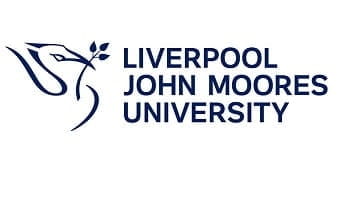Course modules
What you will study on this degree
Further guidance on modules
Modules are designated core or optional in accordance with professional body requirements, as applicable, and LJMU’s Academic Framework Regulations. Whilst you are required to study core modules, optional modules provide you with an element of choice. Their availability may vary and will be subject to meeting minimum student numbers.
Where changes to modules are necessary these will be communicated as appropriate.
Core modules
Computer and Numerate Skills
20 credits
20 credits
Database Design
20 credits
20 credits
Networks and Information Systems
20 credits
20 credits
Introduction to Programming
20 credits
20 credits
Personal and Professional Development
10 credits
10 credits
The Global Marketplace
20 credits
20 credits
Managing People and Organisations
10 credits
10 credits
Core modules
Systems Modelling and Requirements Analysis
20 credits
20 credits
Research and Analysis for E-Business Technology
10 credits
10 credits
Computer Architecture
10 credits
10 credits
Creativity, Innovation and Entrepreneurship
20 credits
20 credits
Optional Modules
Quality Management
20 credits
20 credits
Project Management
20 credits
20 credits
Business Process Integration
20 credits
20 credits
Operations and Technology Management
20 credits
20 credits
Web Development
20 credits
20 credits
Software Applications for E-Business
20 credits
20 credits
Core modules
Technology Management Project
40 credits
40 credits
Internet and Open Source Programming
20 credits
20 credits
Computer and Network Configuration
20 credits
20 credits
Technology and Business Interaction
10 credits
10 credits
Supply Chain and Logistics Management
20 credits
20 credits
Management and Finance
10 credits
10 credits
Fees and funding
Entry requirements
Please choose your qualifications below to view requirements
Grades/points required from qualifications:
Work out how many UCAS points your qualifications are worth using the UCAS Tariff Calculator.
International requirements
Other international requirements
School/College leavers are expected to have achieved one of the following entry requirements: (i) SPM -3 credits (equivalent to O level) plus YPC-iTWEB Diploma in E-Business Technology - with 2.5 Cumulative Grade Point Average (CGPA) OR (ii) STPM (Malaysian Higher School Certificate) -2 passes (equivalent to A level) in appropriate subjects OR (iii) MQA approved Diploma in an appropriate discipline - with 2.5 CGPA OR (iv) YPC-iTWEB Foundation in Business and Information Technology/YPC - ITWEB Foundation in Business. OR (v) A Matriculation recognised by the Malaysian government - with 2.0 CGPA and above OR (vi) 'A' Levels OR (vii) Pass in the Unified Examination Certificate (UEC) with minimum 5 subjects in Grade B and pass Mathematics and English The Programme Leader will interview all applicants to ascertain their knowledge, skills, suitability and English language competence in relation to the programme requirements. Applications are welcomed from students offering other awards or combinations of unit awards. These will be considered on an individual basis. Applicants holding a YPC Diploma in E-Business Technology will be eligible for Level 5 entry. In each case the YPC International College Programme Co-Ordinator will assess English Language capability (such as MUET Band 3 / IELTS 6) and if necessary, place students on an appropriate English Language programme.
How to apply
Securing your place at LJMU
Your university life
From accommodation and academic support to clubs and societies. Find out what LJMU has to offer.
Talk to our students
Connect with a current LJMU student for advice and guidance on university life, courses and more.
See what our students are saying
At LJMU we want you to know you're making the right choice by studying with us. You can see what our students are saying about their experience with us through their reviews on the following websites:
Related Links
News and views
Browse through the latest news and stories from the university










The university reserves the right to withdraw or make alterations to a course and facilities if necessary; this may be because such changes are deemed to be beneficial to students, are minor in nature and unlikely to impact negatively upon students or become necessary due to circumstances beyond the control of the university. Where this does happen, the university operates a policy of consultation, advice and support to all enrolled students affected by the proposed change to their course or module.
Further information on the terms and conditions of any offer made, our admissions policy and the complaints and appeals process.









